|
Welcome Bernd! Thanks for taking some time to chat about writing. First, a few quick-fire questions: Skiing or surfing? Cats or dogs? And what is the farthest north you have ever traveled? Skiing, but preferably cross-country which can sometimes turn into downhill-skiing. Dogs! The North Cape in Norway. Flying over Iceland, Greenland, and further North doesn’t count. "Skiing, but preferably cross-country which can sometimes turn into downhill-skiing." Many of us (myself included) have longed to travel to distant places these past two years. You divide your time between Istanbul and Berlin, so can you give readers your top restaurant or cafe recommendation for both cities? For Istanbul it’s Çiya Sofrası, located in Kadıköy on the Asian or Anatolian side as Turks say. Two coffee places for Berlin, if you allow, very different in character: Café Savigny in Charlottenburg (rather cozy, some outside seating, with many newspapers) and Café Einstein in Tiergarten (old villa, Viennese style, very nice summer garden). Few writers struggle to start books and almost every one I know of struggles to finish them. As a prolific writer of non-fiction who has completed a number of books, what do you think the key to finishing a book is? Are there any habits, strategies, or frameworks that have helped you reach the end? Writer’s block is not really part of my experience. I never had to force myself and mostly had tight deadlines from my editors which helped. The expectation to see the book in print, my impatience, really helped. In retrospect, I wish I had taken more time with some of the books, just to enjoy the time spent with them more. I more or less see all of them as “research projects”, even though they didn’t result in academic books. Topics explored in your books include the cultural history of orchards, human fascination with birds, and even such concepts as night and winter. As many writers of fiction (I am thinking either historical or science fiction specifically) struggle to feel ‘qualified’ enough to write to this level of depth and accuracy, what advice do you have for writers who want to write like experts in a particular field? I hope I don’t come across with an expert’s attitude. I often see myself as mediating between experts and a readership that’s interested in a particular, popular topic. It’s really important to have a competent editor and one or two experts from the field who can check books for accuracy before they go into editing. For university presses this is common practice, as you may know. So I recommend that writers connect with a researcher in the field who may not have the time or inclination to write a popular, non-academic book him or herself and is happy to comment. "I often see myself as mediating between experts and a readership Extreme North, your most recent publication, has been described as a cultural “cabinet of wonders” as you explore the northern cultures that gave rise to both historic and popular myths about the north. What drew you to this topic and do you feel you achieved what you set out to accomplish? In part, it developed from my work and book on the experience of winter across the ages titled Winterlust. My travels in Scandinavia, the study of the Swedish language, an interest in history and in the making of myths or fictions also play a role here. Without having all these images and memories from my trips this book wouldn’t have been possible or turned out very differently. I wanted to pull different threads together, most importantly the connection between Romanticism, anti-semitism, and the fictions of white supremacy and ‘Nordic’ superiority. Extreme North is not a cultural history of the Northern cultures themselves, which would easily have filled a thousand pages, but the ways in which ideas about “the North” have been appropriated and instrumentalized for other purposes. And yes, I’m really quite satisfied with the result and the reactions to the book have been mostly positive so far, but I’m not saying that the story is ‘complete’ or couldn’t have been told in other ways. "Extreme North is not a cultural history of the Northern cultures themselves, which would easily have filled a thousand pages, but the ways in which ideas about “the North” have been appropriated and instrumentalized for other purposes." One of the central threads in the book is how these northern myths have been used to justify racist and eugenic ideologies that still pervade Western culture today. As a writer who draws great personal and creative inspiration from the myths, I find this both heart-breaking and critical to address every time this comes up in conversation. My question for you is this: what is your message for creatives who draw from this intriguing and often problematic body of myths? This is a very important question, but I’m not sure if I have a satisfying answer. I think it’s important to keep in mind that these myths have been passed on from generation to generation, sometimes across language barriers and certain religious filters. So I would not see them as absolute truths, there always remain some questions. I’m skeptical when someone tells me that this is how it “really” happened. There are some really interesting books that tackle history from a more scientific or anthropological point that may help to put things in perspective. Please let me recommend Neil Price’s Children of Ash and Elm. Everybody has to decide for himself or herself how far to go with using the stories and myths. I don’t feel like being in a position to tell people what they should do. At the risk of asking too grand a question, what would you say is the greatest gift that cultures of the north have to offer the rest of the world? If we refer to the indigenous cultures of the North, I find astonishing how well, over several thousand of years, they adapted to a really challenging environment and climate. If we talk about non-indigenous Scandinavian culture, I’m impressed by the high standards of education, health care and social welfare in general - the ‘Nordic’ model, even though I’m aware that there are some cracks in the system. There is also a sense of being in touch with nature and enjoying the outdoors as well as the comfy indoors that I see in many Scandinavians and that I find adorable - in particular, concepts such as friluftsliv and hygge. Not sure if it belongs here, but I’m a big fan of the Danish movie directors Susanne Bier and Thomas Vinterberg (and their films). And of actors such as Paprika Steen and Mads Mikkelsen! Last, but not least, where can readers find a copy of Extreme North? And where can they discover your other publications? My friend Brendan from New York told me that you can find it on the table with “notable nonfiction” at the fabulous Strand Bookstore. Or any other bookstore where you may have to order it. Also for the other books. Discover more from Bernd Brunner by visiting his website!
0 Comments
Welcome Ian! Thanks for taking some time to chat about writing. First, a few quick-fire questions: Spicy or sweet? Coffee or Tea? And if you could ride any mythical creature to work every day then which one would it be? Spicy! I’ve been pickling banana chilis all week and they are perfect on top of pretty much everything. I love coffee, I’ve been trying to get a bit more adventurous with my preparations but most of the time I just end up drinking it black. I’m quite forgetful so I have to be careful not to accidentally drink too much! If I could ride a mythical creature to work every day it would be a gryphon - no traffic in the sky! "If I could ride a mythical creature to work every day it would be a gryphon - no traffic in the sky!" Talk to us about your writing routine. Do you write in the morning or evening? Do you write little bits at a time or do you enter a trance-like state and write for hours on end? Do you schedule your writing or do you fit it around everything else you have going on in life? I try to treat it as professionally as possible, making sure I’m at my desk and working away during the day. I used to be much more sporadic with timings but now I’m a lot more focused! I tend to start with world-building, and spend a long time making maps and writing little summaries, what different places are like, how their cultures act and interact, what the history of the land is. From there I move to character, and once I have a good sketch of my main characters I just get going! I normally have a pretty detailed plot outline, but it always ends up being discarded or utterly changed as I think of better ideas whilst I’m writing! I tend to work in iterative drafts- my first draft is a skeleton, functional but lacking depth and very messy (tone, pacing, character, you name it…) - but I find having that messy structure in place allows me to go back and analyze and build from it. If I’m frustrated or can’t get a scene to work I go back to world-building, or work on a different scene or story - for me it’s important to keep momentum! Congratulations on your debut, The Gauntlet & the Fist Beneath, which launched in August 2021. What were a few highlights from the book launch? Any unexpected surprises? Any memorable moments? And last, but not least, any advice for other writers with upcoming debut launches? Thank you! It was a fantastic experience. I was able to spend a few weeks in the UK around the launch, and one of the highlights to me was travelling around different bookshops and being able to sign copies. It was such an amazing feeling to have copies of my book up there next to some of my SFF heroes, in stores where I’ve bought a lot of books! Places like Forbidden Planet, Brick Lane Books, Foyles, and Waterstones, were all really supportive and it meant I was able to meet some of the booksellers out in the wild. There were a few lovely surprises - The Broken Binding, a new online SFF speciality bookstore that launched in early 2021- they bought a huge pile of copies, and commissioned a special collectors version of the map at the front of the book. I was able to meet up with them and sign all their copies which was really fun. The other surprise was being chosen as the Goldsboro Books SFF book of the month for their SFF subscription - they produced a beautiful special edition with sprayed lightning bolt edges, which is absolutely gorgeous. That was a lovely moment for me to have someone objectively choose the book as something they wanted to share. In terms of advice for other authors around a debut launch, I’d paraphrase what my agent told me: you only get one debut launch, make sure you have a party to celebrate! "The other surprise was being chosen as the Goldsboro Books SFF book of the month for their SFF subscription - they produced a beautiful special edition with sprayed lightning bolt edges, The Gauntlet & the Fist Beneath is set in the Ferron Empire amid political, military, and environmental desolation. Captain Floré battles to ensure that a dying empire dies amid the horrors of the rotstorm. To do so, she must pursue searing celestial orbs which, as they fall, may portend the return of the slaving empire’s old strength. This is a rather grim and dire setting and I am curious to know whether you had a specific historical context in mind or if this was purely a fictional realm? What were some of your inspirations and where did you go when you felt stuck? There are inspirations from many places, but the world of Morost is an entirely fictional realm. My initial inspirations for the project came from some etchings of a mass sighting of ‘celestial phenomena’ in Nuremberg in 1551 - these fantastic woodcuts that show strange lights over a medieval European town. From there I spent a long time thinking about the world I wanted to build. There are elements inspired by the traditions and legends of Celtic animism- I found it intriguing to think of how a society in a similar clime to Britain might have developed into the middle ages without the spread of monotheism. Morost is a world where magic is a force to be reckoned with, and the gods are demonstrable as potent forces- I wanted to ask how that might influence a world, and a society. "My initial inspirations for the project came from some etchings of a mass sighting of Most of our story takes place in the Undal Protectorate, a state built from the ruins of a colonial outpost - what I liked and wanted to explore was the decision of the people not to go back to how things were before the Ferron empire came, back to their chieftains and clans and old societal structure, but actually the decision to build forward - to try and make something new, and better, for all. The actual physical world is heavily influenced by Scotland - I wanted to evoke that sense of existing at the end of the world, in a place wild and raw and beautiful. I took a lot of inspiration from the ruins of Scotland and England, and I wanted to bring forward that feeling of an old world, where there was always someone before, and the traces of those people are indelibly marked on the land. Beyond Undal, there is the rotstorm - an arcane storm that has raged for three centuries, beneath which lies the ruined empire of Ferron. Here, I took a lot of inspiration from science fiction and space exploration, the idea of this utterly inhospitable and alien place that doesn’t follow the rules we expect - but where nevertheless people must try to survive. This is perhaps the most fantastical region in the book - a nightmare of geography made real! Whenever I got stuck on the dynamics of the world I’d refer back to history books, to try and find how people act under different types of pressures. For inspiration I’d also refer a lot to concept art, ancient maps, diagrams of old forts, or a walk in the woods where I can soak in the atmosphere and feeling. "Whenever I got stuck on the dynamics of the world I’d refer back to history books, to try and find how people act under different types of pressures." As a bit of an aside, some might be interested to know that you have a PhD in clinical epigenetics. Many might think this suggests that you would be a Sci-Fi writer rather than an author of Fantasy. How do you think that science, specifically biological sciences such as genetics, can aid authors in creating fantastic worlds full of intriguing magic? I think one reason I chose to write this fantasy novel rather than a science fiction novel was partly due to the large focus I have on science! When I wrote Gauntlet I was working as a scientific editor, and so working on fantasy allowed me something of a release from those strictures. The magic system and mythology within Gauntlet is on the softer side of magic (more like Tolkien than Brandon Sanderson)- something inherently impossible to define, but perhaps possible to harness. I think my background in biology is helpful with regards to this as biology is so intricately amazing and complex and bizarre and to an extent unknowable: even as we understand more and more the constituent parts and patterns that create life, it remains a field where there is always mystery and discovery. My love of biology also stems from a deep love of the natural world, and I hope that my passion for nature is something that underpins the world-building for the series. This is a bit of a selfish question for me to ask as it’s specifically of interest to me, but how has your experience as a Scotsman living in Algiers been? I recently co-edited an anthology of historical fiction with Muhammad Augrangzeb Ahmad exploring the historical interactions between Vikings and Muslims; there are saga attestations of Viking journeys to Northern Africa as well as well-documented raids into Islamic Spain. I’m interested to know, do you draw on any Algerian history or on your experience of modern Algerian society for your writing? If not, what has been the best part of living in Algiers? That sounds fascinating, I’d love to read it! I moved out to Algiers a little over a year ago, after I’d completed The Gauntlet and the Fist Beneath - it has been a difficult year to try to get to know a new country with all of the restrictions on life that have come with COVID, but I’ve been able to travel a little within the country and dive into some of its incredible history. In terms of influence, it is interesting to me how much the themes of empire and colonialism I was working on with Gauntlet are so clearly mirrored here at varying stages in history - how that influences my portrayal of these power dynamics and their legacy in book 2 and book 3 of the series will hopefully incorporate some of what I’ve learned. It has been invaluable to be able to spend time living somewhere so culturally and geographically distinct from so much of my experience. As a Scottish person living in Algiers, I have struggled quite a lot with the heat though! And you can’t get hold of Irn-Bru for love nor money. "...it is interesting to me how much the themes of empire and colonialism I was working on with Gauntlet are so clearly mirrored here at varying stages in history- how that influences my portrayal of these power dynamics and their legacy in book 2 and book 3 of the series will hopefully incorporate some of what I’ve learned." Can you tell us about your next upcoming project? Is it the sequel? Another story altogether? And, if you’re able, can you give us a sneak peek or a little teaser? My current project is book two of the trilogy that began with The Gauntlet and the Fist Beneath! I can’t yet reveal the title, but I’m just polishing up the final text based on some editorial notes and then it should be moving into the world of production soon. After that I’ll be working on Book 3 to finish off this tale. For Book 2, Floré must race to cure her daughter Marta from the encroaching skein-sickness she has inherited, whilst trying to rally the Stormguard as the remnants of Ferron press into their lands. And in the shadows, older foes bide their time, ready to step into the light… It is even more action packed than the first book, and a chance to explore more of the world of Morost and spend more time with your favourite characters! "For Book 2, Floré must race to cure her daughter Marta from the encroaching skein-sickness she has inherited, whilst trying to rally the Stormguard as the remnants of Ferron press into their lands." Last, but not least, where can readers find your books and keep up with your future publications? You can find me on Twitter or on my website - that has all of my publications and contact information. Stop by and say hi! Keep an eye out for news about the sequels to Ian's debut, The Gauntlet & the Fist Beneath, on his website!
Welcome Lyra! Thanks for taking some time to chat about writing. First, a few quick-fire questions: What is your favorite coffee shop in the world? Who is your favorite 18th century rogue? And if you could have one of the treasures that Loki convinced the dwarves to forge for the gods to save his own neck then which one would it be? Thank you so much for having me! Let’s see, my favorite coffee shop in the world would have to be Demel, which is a cafe in Vienna, Austria, and has THE BEST pastries I’ve ever eaten. My favorite 18th century rogue is the Italian adventurer—and all around awful man—Giacomo Casanova. Seriously A+ rogue. Who else would you find selling counterfeit mercury? Love him forever. And if I could have any treasure made by the dwarves... hmmm... that would have to be Gullinbursti, because you’d always have a great conversation starter, and never need a flashlight again. "My favorite 18th century rogue is the Italian adventurer—and all around awful man—Giacomo Casanova. Seriously A+ rogue." You and I share a love of Norse Mythology; in particular, your work focuses on the trickster god Loki. What elements of Loki’s character do you hope to highlight in The Nine Worlds Rising? Are there any misconceptions you want to challenge? What is it about this Norse god in particular that keeps you coming back to write more books? The elements of Loki’s character I hope to highlight in my series are really his complexities. He is a trickster. He is capable of doing both good and bad, helping or hindering. Because his nature is chaos, that chaos ends up affecting everyone and everything around him, and not always for the best. I mean, he does try his hardest, but...there’s still probably a 9 out of 10 chance whatever choice he makes is going to result in some cataclysmic event. But that’s the point, Loki just can’t help himself and keeps getting in his own way, preventing himself from ever having any kind of peace, which, in my series, is truly all he wants. The main misconception about Loki I try to challenge is that he is “the bad guy.” I mean, yeah, Ragnarok wasn’t great, but Loki in the mythology is definitely a figure you can see grow darker and darker as he’s continually pushed, proded, ostracized, and, you know, tied to a rock with his son’s entrails and snake venom dripping over his face. That would give anyone a major case of the grumpies. Villains aren’t born, but made. And I see Loki the “World Breaker” being the creation of the Aesir’s own greed, lies, and broken oaths. As I mentioned earlier, his complexities are an enigma to me I can’t help but explore and try to figure out. Being an outsider also makes Loki relatable and sympathetic, which is only increased when you factor in his own nature forcing him into a cycle of causing pain which he can’t ever seem to escape from. However, there is also the darker side of him. That razor edge filled with spite and danger that takes pleasure in crashing parties and airing out everyone’s dirty laundry. With Loki, there is always a new layer to explore, whether it's trying to figure out his motives to end the Nine Worlds, or answering the question: How would things have been different had the gods shown more (a lot more) compassion? "Being an outsider also makes Loki relatable and sympathetic, which is only increased when you factor in his own nature forcing him into a cycle of causing pain which he can’t ever seem to escape from." I have to go on a quick tangent here because you and I share a connection to the wonderful country of Switzerland as my mother’s family emigrated to Florida from St. Gallen. You have a wonderful description of Basel Leckerli (essentially Swiss gingerbread) on your website. What are some of your other favorite Swiss delicacies? That’s so awesome we share a Swiss connection! Having grown up in a household with a Swiss father, and now living with a Swiss spouse, there is never any shortage of Swiss goodies. Some of my favorite delicacies are Basler Brunsli, which are chocolate almond cookies, and kirsch filled chocolates called Kirschstengeli. On the savory side of things, I will never say no to a good rösti (basically Swiss hashbrowns), or raclette (melted raclette cheese poured over boiled potatoes). Many authors dream of writing a fantasy series such as you have with multiple books filling out the incredible universe of The Nine Worlds Rising. What advice do you have for authors who are right at the beginning, drafting their first book or simply world-building as they brainstorm? Ask yourself questions and daydream. Daydream as much as you can, and start exploring the small parts of your new world first, as this helps to not overwhelm you—you don’t need to know currency systems on day 1. With this in mind, relax and daydream just about a character’s bedroom. Where is it? What’s inside? (Bonus, this also helps you figure out your character!) Say you notice a collection of pink porcelain piggy banks. Where did they get them? Maybe they got them at the marketplace. Oh, there’s a marketplace in this world? Go there. What other wares do you see? What else is being traded at the market? (See, these might provide clues as to the culture). Is the climate warm or cold? Do people ride horses or dinosaurs? Oh, there are dinosaurs? WELL, now you have an entire NEW set of questions to think and daydream about...Rinse and repeat. Write down notes of what you see, feel, and smell. Trust your intuition. Soon, a world will start to emerge and you can have a fun and stress free way of bringing your story to life. Truth and Other Lies is the first book in your Nine Worlds Rising series and features the mischievous exploits of the Norse trickster god Loki. In what ways are reader responses to this book fulfilling your hopes for it and in what ways did reader responses surprise you? The response I’ve gotten from readers has been beyond all my hopes. They see and understand he is a complex character. He’s a product of not trusting others, and continually having his heart destroyed. Loki does a lot of not great stuff, as you said, “mischievous exploits,” but at the end of the day, he tries to do the right thing. Now, is this only because Thor is going to strike him with his hammer? Probably. All joking aside, this is a major question I try to ask in the series. Is Loki capable of selfless goodness? Readers are giving Loki a chance and taking this journey with him. "All joking aside, this is a major question I try to ask in the series. Is Loki capable of selfless goodness? Readers are giving Loki a chance and taking this journey with him." As far as how reader responses have surprised me...Let’s just say I made a very unconventional choice in explaining Odin’s reason for bringing Loki into Asgard. I wasn’t sure what the reaction would be, and I braced myself for ALL CAPS EMAILS. But I’ve been absolutely delighted how readers have embraced their story, and how I’m trying to explore the myths through this new lens. The Order of Chaos and That Good Mischief are Books 2 & 3 in The Nine Worlds Rising. I know that when I wrote The Everspring and The Elder Trees, Books 2 & 3 of The Saga of Torin Ten-Trees, it was a completely different experience as compared to the first. What elements of the writing process during the first book coincided with the second and third? What parts of the experience differed? And what did you take away from the process of completing the sequel? The one aspect of the writing process that remains the same over all books is that I keep to a “three main draft” structure. That is, after I collect my mess of notes and construct a synopsis, which gives me an overview of the story and I can more easily swap things around, I then write a quick first draft, which takes me around five weeks. After letting it sit a bit, I return to it and that’s when I do my main revision, implementing all the changes I kept track of while fast drafting version 1. This takes me the longest, and is also the hardest part of the process, as I’m merging in a bunch of things and small changes have big ramifications. This completed draft 2 is actually readable and is what I send to my editor. Draft 3 is me making smaller changes based on my editor’s feedback, as well as a beta reader’s. After that, it’s all the fun* detailed work like hunting down overused words, making sure character’s eye colors don’t change, etc. (*It is not fun.) "The one aspect of the writing process that remains the same over all books is that I keep to a “three main draft” structure." Now, how it has differed is more in the way I’ve learned to streamline and just learning more about my own process and how to optimize. Note apps have been a game changer for me vs writing fifty pages of random blips. This allowed me to make the first draft for book 2 and 3 much faster than it went for book 1, which took me about a year. Of course, a book 1 is always trickier as that’s the book where you are still learning about who your characters are, and the world they inhabit. What I took away with completing the sequel is a peace knowing that the characters have really come into their own. Whereas we were still getting to know each other in book 1—me trying to set up their story lines. Them throwing tantrums about it— with book 2, they were truly living and breathing and I more or less listened and wrote it down. Book 2 and 3 have honestly become more or less me giving my character’s therapy. I see what their troubles are, how I would LIKE them to be at the end of their arc, and see what I can do to help them get there—usually this is me just making the most awkward situations I can think of to force them to talk about their demons, or as Loki would call it, “icky” feelings. Can you give us a sneak peek of what your next major project will be? Will The Nine Worlds Rising continue or will you start a new series? Any hints or perhaps a little snippet to get readers excited? I am definitely continuing on with this series! It is pretty much all I live and breathe now. I am finally nearing the end of the second revision of That Good Mischief, and I also have a new novella slated for release this fall called Thunder, Blood, and Goats. I am trying to fill out this world as much as I can, and I’m loving every second of it. Of course, there is another super big project coming later this summer that I think a lot of people will enjoy, but right now it is also super secret. SO, stay tuned on my social media and/or newsletter for that announcement! I really can’t wait! BUT, as far as snippets go...I think I can share a little something from That Good Mischief. In this scene, Odin and Loki find themselves in a tavern in a lawless port town on the outskirts of Asgard. Unfortunately for Loki, some people really hold a grudge...
Last, but not least, where can readers find your work and keep up to date on your latest publications? Readers can find me on Amazon, as I’m currently exclusive with them through KU. I keep my website up to date, and send out a monthly newsletter (subscribers get a free novella, btw!) Otherwise, they can simply follow me on social media, where I post frequently.
Welcome Bjørn! Thanks for taking some time to chat about writing. First, a few quick-fire questions: What is your favourite kind of cheese? Do you prefer sailing or flying? And if you were to be thrown back in time to the Viking Age what would your weapon of choice be? Cheers Joshua, thanks for having me! Brie plays an important role in my life (oh great, just started salivating), but generally whatever it is they put on pizza is my favourite. So I suppose my favourite kind of cheese is “melted”. I have never had a chance to actually sail. I’ve been on a few moored ships, including Viking ones, but that’s not quite the same. In a few months I’ll have a chance to sail on a real Viking longship for actual research purposes, which is very exciting, but for now I have to go with flying. I’m immediately tempted to say “a hammer,” because that’s what I’m good with, but I don’t think it would be dangerous enough. Give me two throwing axes. "In a few months I’ll have a chance to sail on a real Viking longship for actual research purposes, which is very exciting, You and I have two rather peculiar things in common - one is a love of Viking lore and history and the other is a degree in mathematics! From one mathematical Viking nerd to another, what role do you see numbers playing in Norse mythology and which are the most significant? Three and nine – three times three. There are the Nine Worlds, three Norns take care of the passing of time, Odin was born with two brothers, and when he hung from Yggdrasil to discover the runes, it took him nine days and nine nights. The twenty-four runes are divided into three eights: Freyr’s aett, Hagal’s aett, Tyr’s aett. "There are the Nine Worlds, three Norns take care of the passing of time, Odin was born with two brothers, and when he hung from Yggdrasil to discover the runes, it took him nine days and nine nights." I often like to emphasize that the actual writing of a book is not usually the hardest part; the most difficult thing is actually getting yourself to sit down and write the damn thing. How do you keep yourself accountable and on track when it comes to your writing schedule? I’m disabled and my illness flares up randomly, which makes it impossible to have a schedule. When things are bad, I do very little – sometimes I can’t even read. Then, once I feel better, I decide that I have been magically cured and can go on working for twelve hours. A day later I am so exhausted that I write nothing. I don’t seem to learn from this, perhaps because I love what I do. So I get better again, reopen Scrivener and start again… then rest… then start again… until the book is ready decades later. Typo! Months. I totally meant months. Earlier this year your novel Children was released, the first book in the The Ten Worlds universe which draws heavily from the Norse Myths. The two main characters, Magni and Maya, are the offspring of well known Norse deities and must reckon with the many short-comings of their parents. What drew you to this theme of familial conflict and in what way did family culture of the Viking Age play into the narrative? I read an article about Paris Jackson, who might never get a chance to become more than “the daughter of”. And that was before Finding Neverland showed Michael Jackson in a very different light – now being “the daughter of” carries even more weight. And I thought – how does it feel to be a child of someone so famous that it’s hard to find a person who has never heard about him? When you meet somebody and their eyes light up, and you know it’s never because of you, but your father? "And I thought – how does it feel to be a child of someone so famous that it’s hard to find a person who has never heard about him?" Thor gets half the mythology for himself. He is possibly the best known and most amusing out of all the Norse deities. His son, Magni, only gets two mentions – once when he saves his father from a troll, then after Ragnarok, when he inherits Thor’s hammer. How does it feel to be “the son of” a God everyone knows and worships, while hardly anybody knows about your existence? When people only care for you because you can be a useful tool to get closer to your father – who doesn’t seem to even remember you exist? I didn’t actually try to recreate Viking Age families. I will have to for Land, the next instalment in the series and I’m already dreading it excited. In discussing your process for writing Children, you mentioned that you rewrote the story 29 times! How do you view the editing process in terms of its purpose and function? Do you have any techniques or strategies to ensure that each draft is better than the previous one? I don’t revise or edit in the “traditional” way – I rewrite the whole book over and over. I go through what I have written before, read it, then try to write it again, but better. Sometimes I will finish a part, then immediately go back to its beginning and start again. There are a few scenes in Children that I have rewritten 40-50 times, and I am still not happy with one of them. "It wasn’t until draft 28 that Maya revealed a crucial piece of information to me – she was claustrophobic from the beginning, but it took me 14 months to find out why." My characters tend to hide things from me for a long time. It wasn’t until draft 28 that Maya revealed a crucial piece of information to me – she was claustrophobic from the beginning, but it took me 14 months to find out why. That last moment scene is one of the strongest parts of the book. The whole story would have made much less sense if I stopped with draft 27. This is an unusual writing process and I wouldn’t recommend it to anyone. Any fantasy author would envy your work as a blacksmith. From your time at the forge, what do fantasy writers get wrong about this age-old trade and about weaponcraft in general? Are there any good online resources for those who want to learn more? People underestimate the amount of time it took to create, for instance, a chain maille vest when each of the tiny rings had to be made by hand, then woven with all the others. That’s why only the richest wore chain maille, while most people put on leather and prayed for luck. It’s similar with swords, especially elaborate ones – those things were worth a fortune, because they took so long to produce. And that’s not including many years of learning the craft before you knew how to do it. "People underestimate the amount of time it took to create, for instance, a chain maille vest when each of the tiny rings had to be made by hand, then woven with all the others." Forges are not hot places, unless it’s summer. The fire is not placed on the ground (nobody’s back would survive that), but elevated. In the winter your face will drip with sweat and your feet will be on the brink of frostbite. That one’s not a book, but I can’t believe none of the many great bladesmiths and blacksmiths who worked on Game of Thrones enlightened Gendry that the forge fire is there for a reason when, twice, he grabbed cold iron and began to hammer it. It took me zero minutes during my first class to understand you don’t do that. Can you give us any hints or clues about your next project? Are you continuing to write the The Ten Worlds universe or are you taking a break to write something else? The Norse Gods claimed all my writing time. I’m working on the sequel to Children, called Land, where some deities and their mortal BFFs go to Earth – the tenth world – to discover Iceland. At the same time I’m fiddling with a series of novellas, How to Be a God, humorous retellings of some myths I haven’t worked into The Ten Worlds yet. I’m not a fan of Neil Gaiman’s take on Norse mythology, so I’m writing what I want to read. Last, but certainly not least, where can readers find your books and keep track of your latest publications? The e-books are on Amazon and Kindle Unlimited. The dead tree versions, both paperbacks and hardcovers, are available everywhere – if your local bookstore happens to be open, you can order the book there, same as with libraries.
The best way to keep track with what I’m up to is to subscribe to my newsletter. I tried Instagram, but I just ended up following way too many bearded Vikings for, um, research purposes. I spend less and less time on Facebook, because their latest redesign is actively hostile towards the users. Instead I write 1000 words in Scrivener and 5000 words in my tweets.
And amplify a sense by a factor of ten...hmmmm. I would say sight because my vision suuucks, so amplifying it by a factor of ten would probably just about give me normal vision, yay! In all seriousness, yes, I’d say sight. I feel like all the other senses being amplified would be really rough in different ways. I love both Sci-Fi and Fantasy in all their forms. However, I sometimes wonder why they are grouped together as, for me, they seem distinct in many ways. As a writer of sci-fi and fantasy yourself, how do you distinguish the two genres? Can there be any crossover? Should they be considered separately or are they just two ends of the same spectrum? That’s a really great point, and it’s a pretty big part of my concentration. For my major, I chose to study The Concept of Otherness in Speculative Fiction, and one of the things I talked about a lot with my adviser was the use of the term “speculative fiction” instead of “science fiction” or “fantasy.” For me, speculative fiction means anything that lets the writer make observations about the human condition, society, technology, or really anything, without setting the story in our own world. I would say that sci-fi and fantasy have always been grouped together because they take issues that exist in the here and now and comment on them through creating these other worlds, whether those worlds involve magic and whimsy or tech and innovation. For that reason, I see them as two ends of the same spectrum working towards a similar goal. And as for whether there can be any crossover, my WIP merges magic and technology because I love both genres so much. Whether that crossover is effective is up for debate, but I enjoy it and always look out for it to read! "I chose to study The Concept of Otherness in Speculative Fiction, and one of the things I talked about a lot with my adviser was the use of the term 'speculative fiction' instead of 'science fiction' or 'fantasy.' " You host the online journal Satyr Central which posts “anything soulful and non-conformist”; I personally find this focus so refreshing as almost every publication I have encountered is looking for something so specific that it seems that all but a dozen people on earth are disqualified from submitting. What have been some of the highlights of hosting Satyr Central? Thank you so much! That means a lot to me. And shoutout to one of our editors, “Jon the Semite” for coming up with that little blurb on our About page. I think the biggest highlight of hosting Satyr Central is knowing that I can post some really weird stuff and not worry about “Oh, does this meet guidelines? Oh, is this too weird to publish?” I’ve accepted some great submissions where the authors told me when they submitted that they weren’t sure what category the piece fit into, so they thought it would work well with us, and it did! From theological rants to odes to headless women to articles rating books by how nice they feel and sound, we’ve got some bizarre stuff on Satyr, and I say that with a lot of pride. "From theological rants to odes to headless women to articles rating books by how nice they feel and sound, we’ve got some bizarre stuff on Satyr, and I say that with a lot of pride." Most writers spend a fair amount of time sending queries and submissions. You have experience on both sides of that conversation. As someone who receives and reviews submissions, what are some tips you have for writers who are trying to get their work published?
Other than that, the biggest tip I can give writers looking to submit anything--whether it’s queries for a book, article, short story, poem, whatever--is that it’s a good idea to (politely) follow up if we take too long to look at your submission and get back to you. I love getting submissions, but with everything going on, it’s very easy to get overwhelmed and I always appreciate someone giving me a gentle nudge and saying, “Hey, I sent you this a few weeks ago and just wanted to confirm that you got it.” Now note that some publications/publishers/lit agents don’t like it when you do that and will say that they’ll get to you when they get to you or to take no response as a rejection, and that’s where reading guidelines carefully comes back into play. But for me personally, I appreciate those quick nudges and it’s helped me get back to awesome writers whose submissions I somehow managed to entirely miss. So there’s that! "...the biggest tip I can give writers looking to submit anything... is that it’s a good idea to (politely) follow up if we take too long to look at your submission and get back to you." Sci-Fi and Fantasy as genres offer writers almost unlimited freedom in creating worlds and characters. As always, in the words of Uncle Ben, ‘with great power comes great responsibility’. What are your thoughts on the power of that freedom and what do you think should guide writers in their use of that power? Are there any limits? And where have you seen this power wielded masterfully for the greater good?
"I do think the best stories—Sci-Fi and Fantasy in particular—have the power to You and I share an interest in myths and mythology. One of the joys of engaging with the writing community online is the opportunity to learn about myths from all over the world. Which is your personal favorite flavor of mythology and are there any mythological personalities that you think deserve more air time? Wow, this is a great question (and a tough one!). I grew up on Greek mythology and have always loved it, but in terms of mythological personalities that don’t get enough air time, I’d have to say the legends from The Ramayana. I got to be a student mentor teaching a high school class this Hindu epic, and it was such a joy to explore all of the themes, characters, and political and religious context for the story of Rama, Sita, and Lakshmana. Yet I had never, ever heard of the epic before being invited to take part in that program. I think that’s a real shame and I highly recommend that any lovers of mythology check it out. "I grew up on Greek mythology and have always loved it, but in terms of mythological personalities that don’t get enough air time, I’d have to say the legends from The Ramayana." Can you give us a hint about your current project? Any tantalizing clues or sneak-peek quotes? I’m planning on finishing my first short story from my work-in-progress, which will hopefully be the start of some sort of web series I can post on my website. I want to hold myself accountable because I’m a chronic procrastinator, so I’d love to include the first paragraph from the short story! “It had been two years since the first time Kamiel had been to the Hex Market on the border between his home district and the worst, most loathsome district in The Core City. Since then, he’d gotten accustomed to the hushed conversations, the shifty-eyed patrons, the bubbling of Imaginate elixirs used for something far different and more sinister than their intended purpose, and even the occasional Rending when tensions were high and fights would break out...” Fingers crossed I can actually finish it, ha! “It had been two years since the first time Kamiel had been to the Hex Market on the border between his home district and the worst, most loathsome district in The Core City..." Where can readers keep track of your latest writings and stay up to date on your next publication? I am all over social media, but the best way to keep up with my writing is to subscribe to my blog’s newsletter! I promise we don’t send hundreds of emails a day, but you will get an update when we have a newsletter out or a brand new post weekly.
"My favorite magical creature is Al mi’raj from Arabic poetry. It is also known as the Wolpertinger in German mythology, the Jackalope in American myth and the Lepus Cornutus from medieval and early Renaissance times." I like stories when seemingly weak or underdog characters win in unexpected ways. I’m not particularly religious, but even as a kid I liked the David and Goliath story. Speaking of Goliath- the mythology there is of the Nephilim- the giants who were apparently offspring of demons and humans. That’s interesting. It was when I was a little kid and to me, it probably always will be. I’m a lover of myths that attempt to explain life to believers. There’s a creature from the Ewe tribe of Togo and Ghana called the Adze. The Adze are shape shifting vampires and evolved as a way to warn against the deadly effects of mosquitos and malaria in the region. "If I had to be best friends with a villian, I would choose the Fratelli family from Goonies." If I had to be best friends with a villian, I would choose the Fratelli family from Goonies. They were such a bumbling group of silly meanies. I write Middle Grade and Picture Books, so it follows that I would like this group of greedy criminals from a smash hit kids movie. I especially loved Sloth Fratelli but he was a good guy, wasn’t he? I drink an unnatural amount of coffee while I write. I recently upgraded to a Keurig after a decade of using the same drip coffee maker. Now, I can have a hot cup - fresh every time I need a bathroom break. It’s kinda funny- I was gifted a box of mixed flavor coffee from my wonderful husband and now I rotate through cinnamon, vermont maple, hazelnut, southern pecan and blueberry vanilla and I love it. "I drink an unnatural amount of coffee while I write." I often offer to read rough manuscripts for fantasy fiction and one piece of feedback I often give (and sometimes get!) is that the narrative doesn’t feel ‘real’. How do you manage to connect with your characters and express their thoughts and emotions to readers in an authentic way? Well, thank you for this question because it implies that I know how to make a character come to life and feel ‘real,’ jumping off the page. I am not sure I always do this. There are times that I’ve reread my work and felt the feelings that the characters are reported to be feeling. I’ve cultivated those moments by writing about something that I have a personal, visceral connection to. Feelings are triggered by sensory experiences and if you can tap into the sensory experiences of your reader and make them feel the feelings that the characters are feeling from the lens of their own visceral life experiences...it becomes real for them. They feel like they “know,” the character. Using the five senses can get you where you need to be quickly. Also using observations about human nature and human behavior can create a connection and give insights into how a character might be feeling. The reader might find themselves thinking “I do that too.” Many authors branch out from writing to provide other services related to the process of making books as editors, graphic designers, and online forum hosts; I call these ‘writing adjacent’ skills. In addition to your writing, you also design incredible author logos to help writers present their brand effectively. What advice do you have for writers who are thinking of exploring the option of offering services using their ‘writing adjacent’ skills? I think that writing adjacent services help you to build an author platform. If you are launching a writing career out of obscurity - offering a service can help others get to know who you are and where you sit within the writing community. You can cultivate friendships, readership and writing adjacent customers in this way. When it comes time to enter into the querying trenches, having a following of some kind is important. How important? The blog subscribers, twitter followers or insta numbers as a platform are a mystery to most of us, but a general, strong effort to get your name out there is valuable and it shows. It shows you have staying power and that you are willing to work for your place in the industry.
There is an origin story for the bunny in The First Easter Rabbit narrated by Burl Ives from 1976 but I wanted to give my story a classic feel and tie it to another famous rabbit story. I find retellings satisfying because the reader gets to re enter a world they’ve loved before and learn a little bit more about the beloved characters. They get to relive the joy. My version of The Velveteen Rabbit, The Girl Behind the Magic sticks to Margery Williams’ original and has enough of her story for modern children to receive the wisdom that Williams intended about ‘realness,’ coming from the pure source of love. However adding a few more layers of contrast helps this story come to life in a fresh new way. Also there is a little girl in this story and I think adding little girls to stories that once had boys as the only protagonist is a fresh take too. "However adding a few more layers of contrast helps this story come to life in a fresh new way. Also there is a little girl in this story and I think adding little girls to stories that once had boys as the only protagonist is a fresh take too. " You are also a writer of short stories and in your lyrical piece The Hope Goblin, a young girl named Isabelle learns to confront a wicked, bullying goblin. The themes of building one’s own self-confidence and self-image are apparent throughout the rollicking tale. On that topic, how do you feel about instructive literature vs. escape fiction? Where is the line for you as a writer between stories that teach and stories that entertain? I love escapism as a reader. As a writer, I must be true to my roots, and instructive literature comes out in me in earnest. I was an English teacher overseas in the Peace Corps, Uzbekistan and then also independently in China. I taught 8th grade writing in Texas as well as ESL to adults and kids. If teaching is breaking something down to its simplest components to be able to build- students in tow, a thing to its theoretical completion- this is how I approach most things in life. I am a parent and I utilize those skills. I love to cook and paint abstract pieces and I do graphic design. I use the skill of looking at the building blocks and ingredients to get to a desired result in those areas too. I think this is why I like writing for kids. Simplifying may seem just that...simple...but it’s a lifetime thus far of developing the skill of breaking things down in order to teach it... I think I bring this skill to the table as a writer too. "Simplifying may seem just that...simple...but it’s a lifetime thus far of developing the You have an impressive compendium of mythological creatures on your website, including the little known fairy pig from the Isle of Man known as the Arkan Sonney. What draws you to these creatures and in what ways have other writers responded to your work on that collection?
"We all have similar fears and insecurities too and you find them personified in many of the creatures of myth." Authors from other countries have contacted me and asked when I am going to do an article on a creature from their culture. I am slowly working through an alphabetical list and so many have said they will be patient until I get to theirs! Others have reached out and thanked me for expanding past what they can find on Wikipedia. I try to cross reference and give examples from several sites so that I am not just replicating what is already easily accessible on the internet. What also seems to be helpful is talking about where the mythological creature has shown up in American pop culture. I find that advertising and product naming ventures pull from International myth and folklore a lot. "I try to cross reference and give examples from several sites so that I am What can you tell us about your most recent project? Do you have a few smaller stories on the go or are you working on something big? I am currently seeking representation for a #STEM, PB series and am very excited about the process. I have a MG Contemporary Adventure based on Aztec Mythology that I am trying to find a home for as well and am also continually working on short stories and creature articles for my blog. Last, but not least, where can readers find more of your work and stay up to date on your latest publications? Find A.R. Jung's adaption of Margery Williams’ The Velveteen Rabbit on Amazon: The Girl Behind the Magic.
I set up a certain time frame, in which I’d like to be done writing. After creating a detailed outline I can break it down easier. It helps me figure out how much I need to write each week to reach my goal! "For a writing retreat, I’d love to go to The Black Forest." I often hear writers complain that they don’t want to waste their time on social media. Personally, I have sparked many meaningful connections within the writing community online and have received much in the way of encouragement from this network of fellow writers. As you have found success in attracting a large audience online, what justification would you present to writers who are skeptical about the usefulness of social media? I think anyone that has the opportunity to converse with, or learn from, other writers and authors, as well as spread the word about their work, should take that chance. You never know when that big break will come! Before I wrote The Gatewatch, most of my writing took the form of song lyrics which I sang and performed with a Celtic folk music group. You have a musical background as a vocalist in the hard rock genre. How do your experiences in music shape your stories and what do you think other writers could learn from musicians? I’ve been a musician for over 10 years now. People often feel moved by music, whether it’s the lyrics or the sound. I think metaphors are a big reason for that. Novels can have that same effect. "People often feel moved by music, whether it’s the lyrics or the sound. My stories are primarily inspired by the Norse Myths and I often find myself going back to source material to pick up small details about minor characters that I missed before. Most memorable for me are some of the characters that never get mentioned in popular culture, unlike the well-known actors like Thor, Odin, and Freya. I think a similar phenomenon happens in representations of Greek Mythology as characters like Zeus, Hermes, and Aphrodite overshadow most others. As your work is inspired in part by Greek Mythology, who do you think of as a figure in the Greek myths that deserves a moment in the spotlight? I think that all deities deserve the spotlight, honestly. There are those shrouded in mystery, and chaos, and so many of them are highly misunderstood. Oh and Hera! Definitely Hera. Looks around the room, nervously, with a forced smile. "There are those shrouded in mystery, and chaos, and so many of them are highly misunderstood.
The fantasy realm of Gnariam that you have created is both deep and wide. I sense a lot of anxiety from new fantasy writers about creating the world in which their stories take place. While I think we can both agree that there is no end to the work a writer could do in crafting their world, where do you think a new writer of fantasy should begin in their world-building process? I absolutely love the world of Gnariam so far. It’s going to continue to grow. I think the best tip I could give is to think of as many things in this world, and write them down. For example: governments, religions, currencies, land masses, creatures, if there is magic or tech, terrains, climate, clothing, technology level, etc. Creating a world that feels tangible is a key to success. "Creating a world that feels tangible is a key to success." Where can readers find more of your work and stay up to date on your latest publications? Discover the realm of Gnariam through C.S. Ratliff's novel The Lightning Rod on Amazon.
In light of these depictions, you may be surprised to learn the historical source material for dwarves in fantasy, the Norse myths, portray them as unequivocally evil. Though not even the Norse gods enjoy the benefit of the doubt with Odin himself being nicknamed Bolverk (Evil-Doer), dwarves were viewed as particularly vile. At one time they had supposedly been maggots wriggling in the dirt which were given the wits of men; with such repulsive origins they might be viewed as a symbol of the greed, lust, and violence that marked most of the Viking Age. (And if you think that is an ignoble birth then consider the fact that Ymir spawned giants out of congealed sweat in his armpits...) "At one time they had supposedly been maggots wriggling in the dirt which were given the wits of men..."
"The dwarven brothers tied him to the chair and cut his throat so they could catch his blood in a vat.
"Mighty Fenrir is brought low when the gods call on the dwarves to craft the strongest chain of all;
There she comes to the dank cave of four dwarven smiths who are admiring their latest creation, In my own writing I have worked to honor the original conception of the dwarves as presented in the Norse Myths while taking care to remain sensitive to the historical contexts in which the myths have been abused. Particularly heinous are the propaganda posters used to instill hatred toward people of Jewish descent during World War II; an honest evaluation of these political weapons will admit some clear lines being suggested between people of Jewish descent and the dwarves from Norse Mythology. Further, some adaptations of Wanger’s ring cycle clearly present Norse dwarves as pseudo-Jewish type characters which is yet another example of the toxic racism that led to one of the darkest chapters of human history.
Instead of abandoning the myths to those who would weaponize them for ill purposes,
Were they metaphors for human lust and greed? Were they archvillians to flesh out a world full of heroic gods? For more on the history of the Norse Myths and their modern interpretations, Joshua recommends
From Asgard to Valhalla: The Remarkable History of the Norse Myths by Dr Heather O'Donoghue. Stay up to date on Joshua's latest books by joining the Trollhunters!
I mean, the woman got armored all up and marched to the gods’ doorstep to demand compensation Some authors stick to strict writing schedules while others prefer flexibility when managing where and when they write. How have you managed to maintain productivity as you write short stories and novels? Do you have any tips for writers who feel that ‘there just isn’t enough time’ to write? My advice to writers who feel there isn’t enough time is to give yourself a deadline and try to plan around it. Find a magazine accepting short story submissions and say to yourself, “This is the deadline for submissions; I need to have the story done by x date to have it ready to submit,” or tell your friends or beta readers you’ll have a story to them by x date and implore them to keep you accountable. Find a magazine accepting short story submissions and say to yourself, My other piece of advice—if you hate pressure and deadlines—is to just try staying inspired. Read books in your genre, do research on your subject matter, write your outline, or write drabbles to get to know your characters. If you’re busy, there’s no such thing as “making time.” But if you’re so invested in your story to the point where it won’t leave your brain until you get the words down, you’d be surprised how much you can accomplish even in a short amount of time.
I ended up taking her Norse mythology and Icelandic saga classes too, and co-founded the Icelandic Saga and Scandinavian Clubs with some like-minded geeks. I think one of the things I love about Norse mythology is that every time I reread the Eddas, I come across something I didn’t realize before and find myself looking for an Old Norse version of the poem or paragraph and reaching for my Old Norse dictionary to look up certain words. Plus every translation of the Eddas is slightly different, and there are also several different manuscripts that could be used as sources—and if you’ve ever seen pictures of them, you can see that there’s room for error in transcription. The whole thing is like one giant puzzle and you can’t take anything at face value, and I love it. ...every translation of the Eddas is slightly different... The whole thing is like one giant puzzle You have now had two short stories published in fantasy anthologies: Beneath Yggdrasil’s Shadow and Between the Tides. Will you continue to write short stories now that your debut novel, The Witch’s Heart, has been signed for publication? Also, do you have any tips for writers trying to break into the fantasy publishing scene with a short story?
Even if your first published story isn’t in a huge magazine or famous press, Signy Ketilsdottir versus the Sea (as featured in Between the Tides) is the story of a Viking woman living in a remote fjord with a grudge against Ran, the Norse goddess of the sea. Was Signy’s inspiration a specific historical figure, a character from the myths, or from somewhere else?
The anthology Beneath Yggdrasil’s Shadow highlights stories about lost or forgotten goddesses in Norse Mythology. Your piece Bright One, They Called Her, as featured in the anthology, tells the tale of wandering witch who offers a young girl named Eydis a chance to avenge her murdered family. Within the story there is a tension in framing the traditionally heroic Aesir (i.e. Norse gods) as far less than admirable. Did you choose this alternative perspective simply as a way to freshen up an old narrative or as a critique of the traditional view of the myths? That’s a great question! I framed it that way because the wandering witch is Angrboda, who doesn’t necessarily feel the gods are all that great, since they took her kids and all. Her whole message to Eydis is about taking her fate into her own hands and not relying on divine intervention or the support of others for justice. Eydis also appears as the witch Heid (which is more of a title than a name) in Signy vs. the Sea and will appear again in Gudrun’s story, so there’s a bit of continuity in these tales. Her whole message to Eydis is about taking her fate into her own hands I am very intrigued by the topic of your upcoming novel, The Witch’s Heart, which sets the character Angrboda at center stage. A somewhat obscure figure in the myths, she is most famously known for her infamous offspring by the trickster god Loki: the world serpent Jormungandr, the ferocious wolf Fenrir, and the chilling half-corpse Hela who is queen of the Norse underworld. What was your approach and process for filling in the gaps of her storyline while writing The Witch’s Heart? I am so glad you asked! You’re right that Angrboda is super obscure. She’s mentioned once by name in each Edda and both times in relation to Loki and their children together. In most retellings she’s either some sort of creature or just sort of…there. And a lot of people picture her as this fierce warrior women, which is totally cool and also I hope those people aren’t disappointed with me. (I happen to have one such depiction as a poster on my wall because it’s so awesome—just not the way I went in TWH.) The angle I took with Angrboda was to explore the associations she has in common with or which are echoed in other female figures in the mythology, so I ended up writing them all as the same person. Sounds crazy, right? But Norse mythology abounds with multiple names for the same figure (Odin being the best example of that) so I just sort of took this idea and ran with it. Sounds crazy, right? But Norse mythology abounds with multiple names for the same figure
Another giantess in the mythology who has associations with wolves, snakes, and death is Hyrrokkin, And then there are the other seeresses: the Seeress from “The Prophecy of the Seeress,” who mentions Heid, the woman with the “pleasing prophecies,” who was once Gullveig, whom the gods burned three times and who was three times reborn near the beginning of everything. So I ended up writing Angrboda as all of the above: Gullveig, Heid, Hyndla, Hyrrokkin, the Seeress, etc. and interpreting all their names as one name for the same woman, so the story just kind of flowed from there. My goal was to make this novel slip seamlessly into the background of Norse mythology—which meant not changing the myths themselves, up to and including Ragnarök. But my problem was that I’d given this one woman phenomenal cosmic power… what kind of person would she have to be not to use this power to save her children and alter their fates? But my problem was that I’d given this one woman phenomenal cosmic power… With all that said, I definitely took some liberties when writing the story, and I’m the first to admit that. For example, I made Jarnsaxa one of the Jarnvidjur (the giantesses who inhabit Jarnvid) and made Angrboda and Skadi’s relationship central to the story. There isn't any evidence for either of these things—they just sort of happened as I was writing! Where can readers stay up to date on your latest projects and learn more about the upcoming release of your debut novel? I’m still in the revising stages of The Witch’s Heart so there isn’t much to update at the moment. I recently got the first peeks at my cover and I am so thrilled because it’s absolutely gorgeous and I can’t wait to share it. Although I’m most active on Twitter, I’ll be updating Facebook and my website as my release date (early 2021) draws closer. Find Genevieve on Twitter at @ironwitchy and keep an eye out for updates on her website!
|
AuthorJoshua Gillingham is an author, editor, and game designer from Vancouver Island, Canada. Archives
April 2022
Categories
All
|

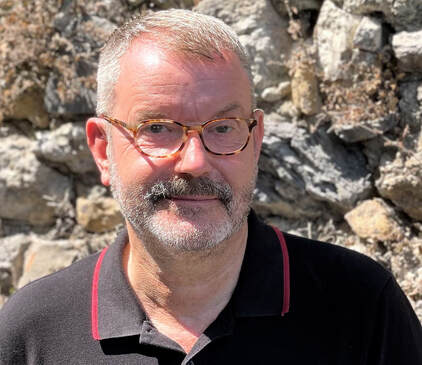
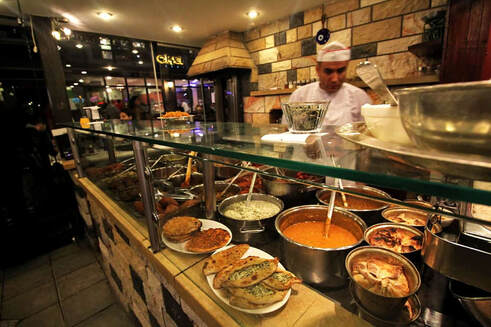
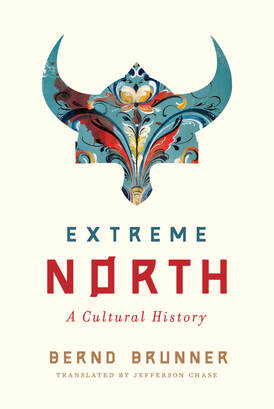
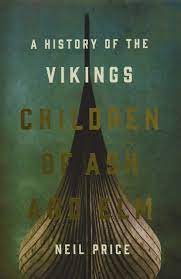
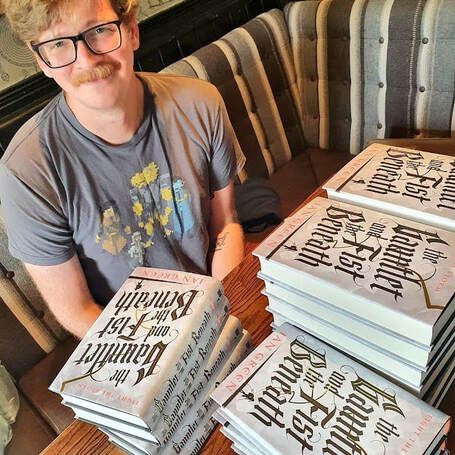
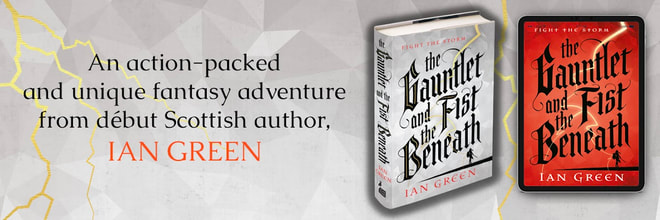
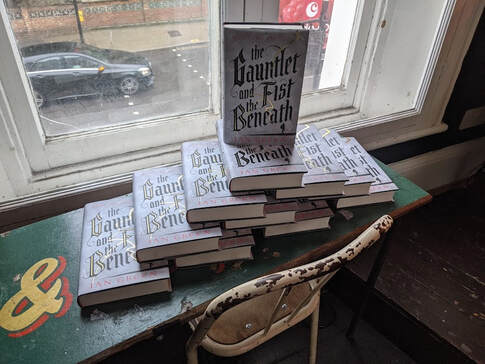
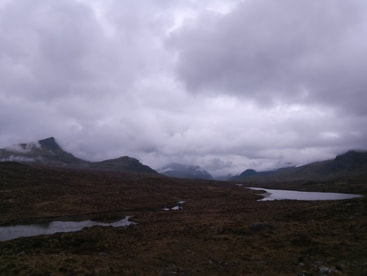
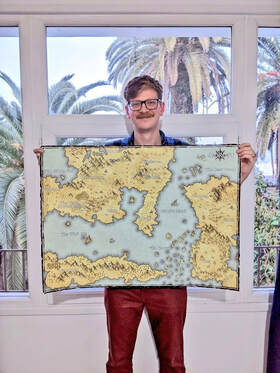
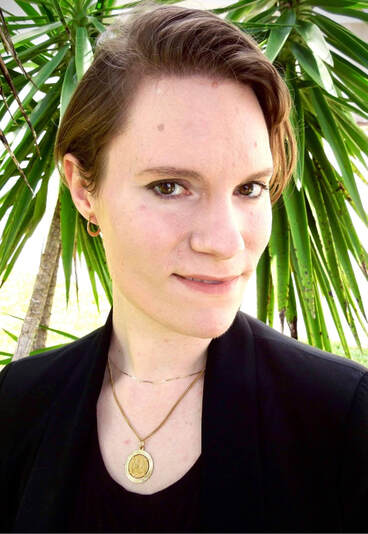


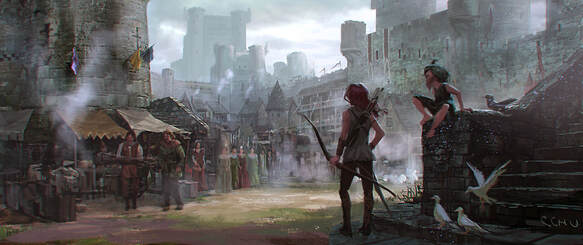
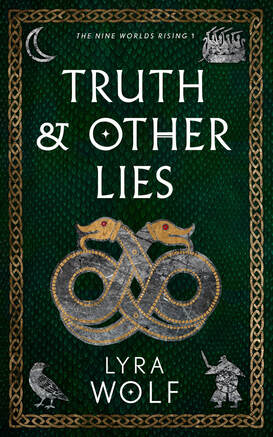
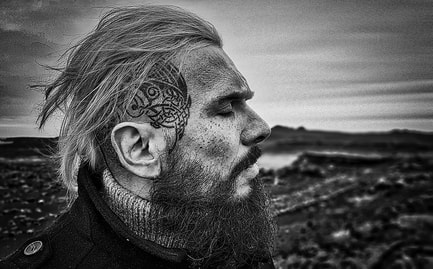
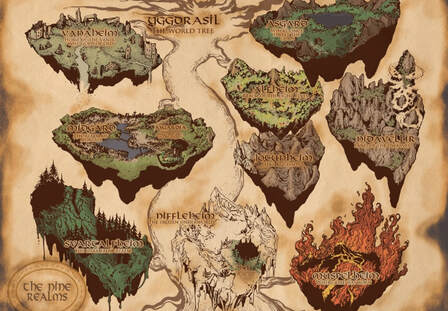
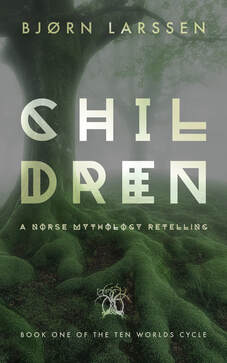
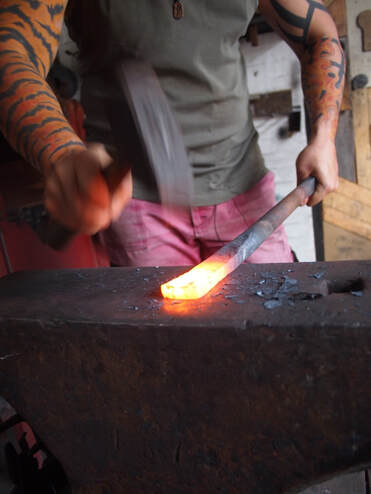
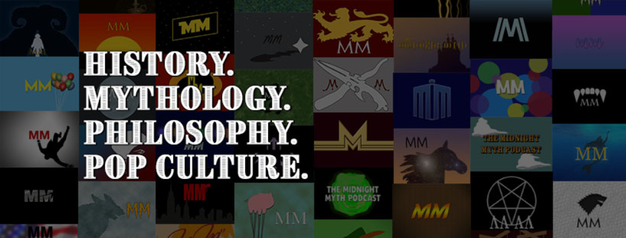
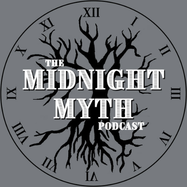



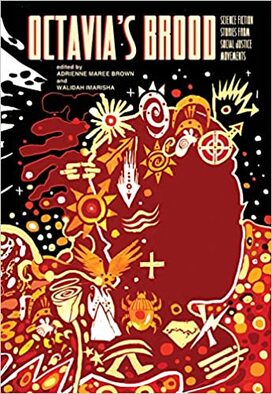

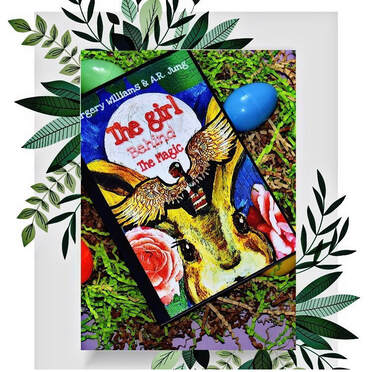
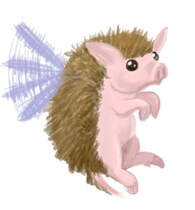
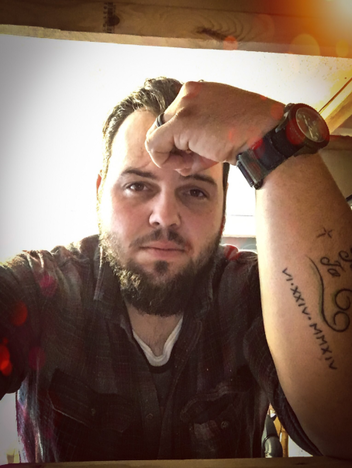
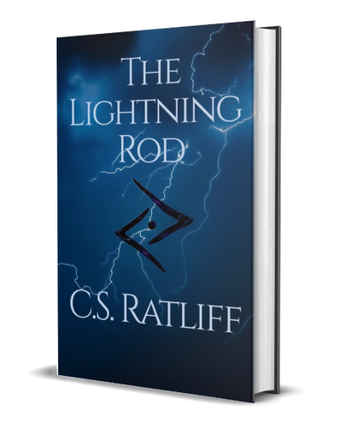

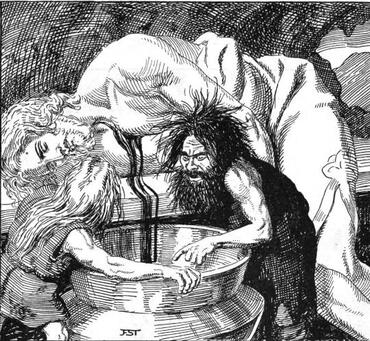
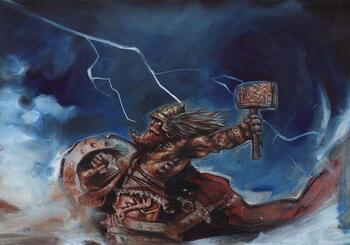
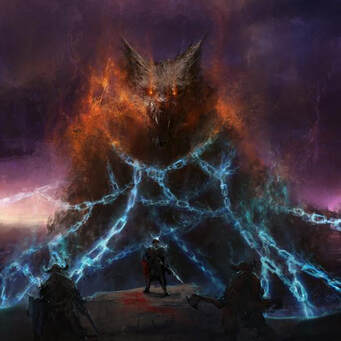

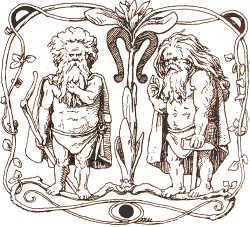
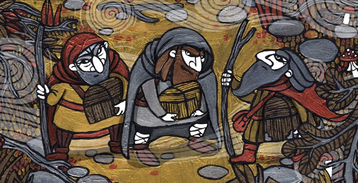
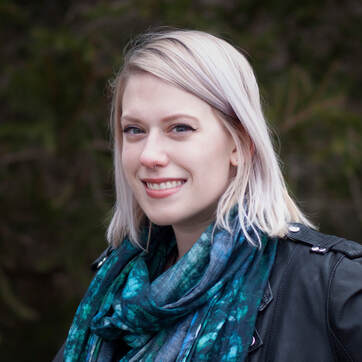
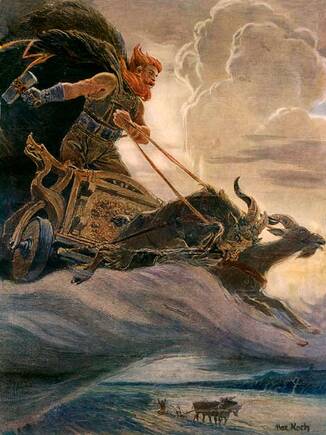
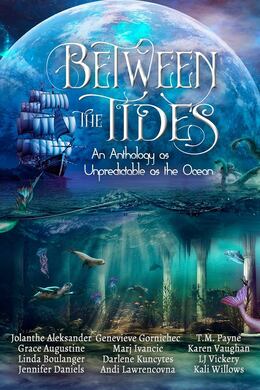
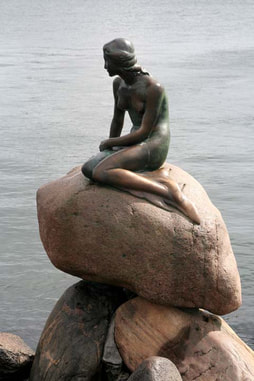
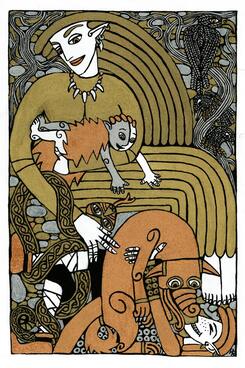
 RSS Feed
RSS Feed
